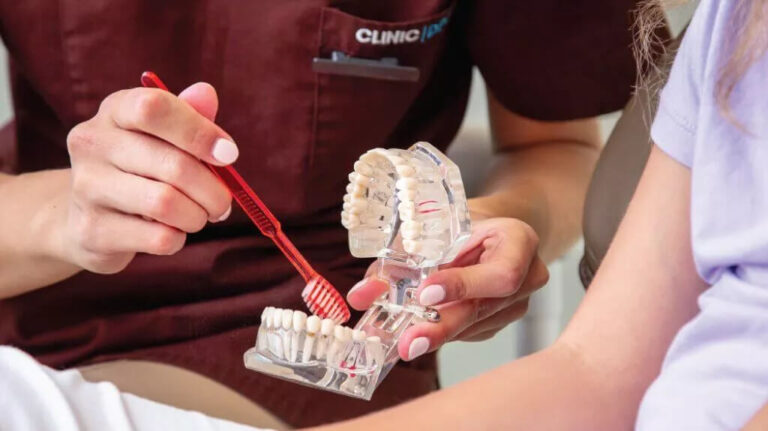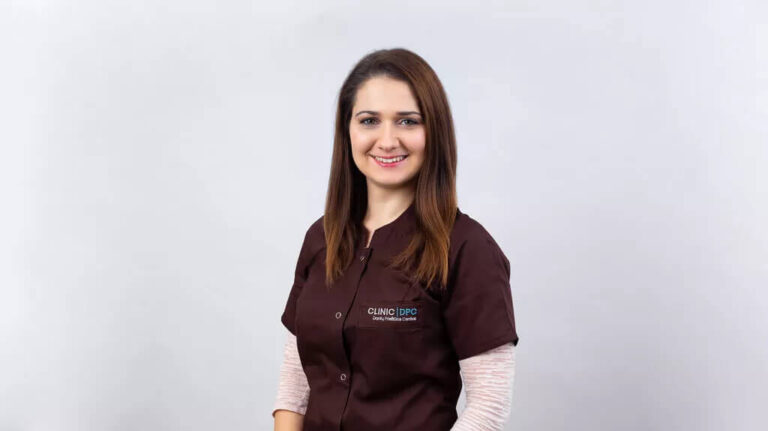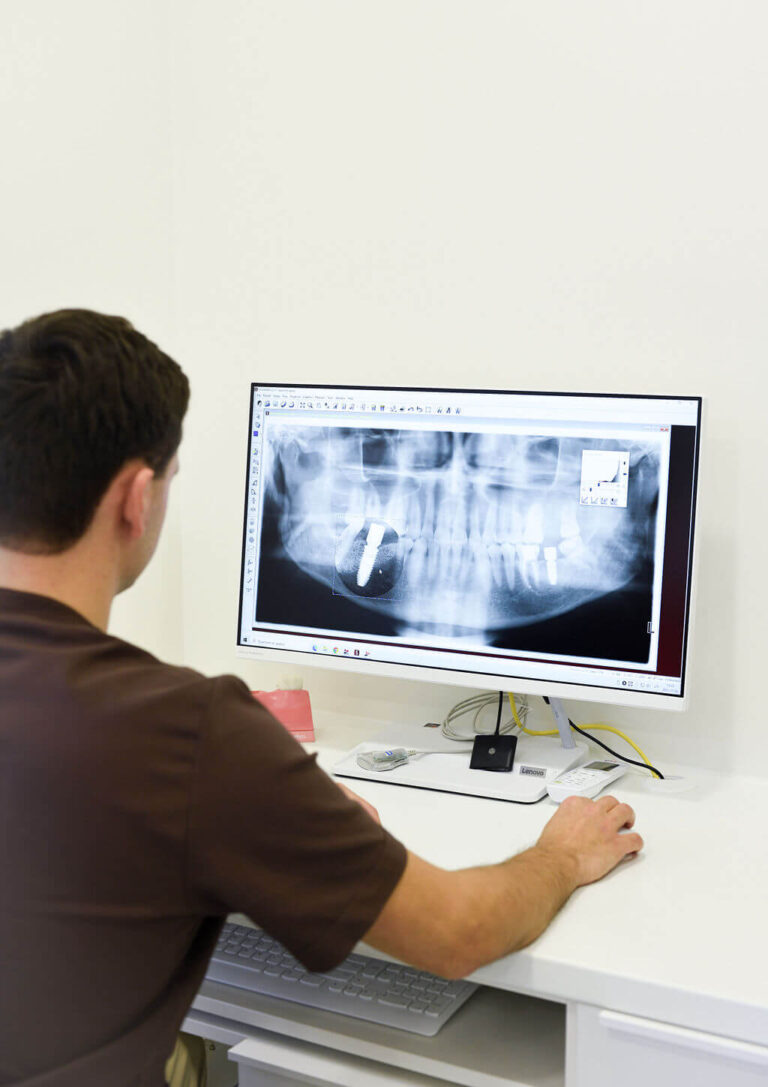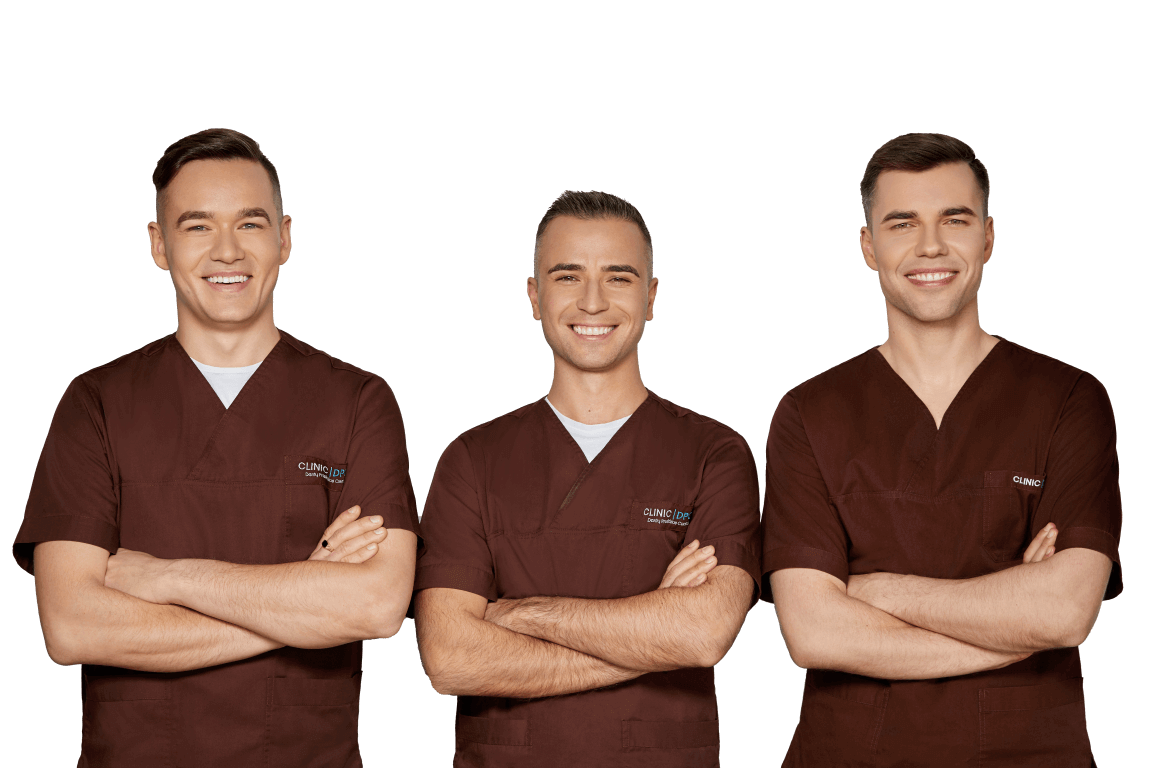For urgent help call +370 632 00005 or register for a consultation.
Pregnancy is a special time when you should minimize worry and stress and take the utmost care of your mental and physical health. Unfortunately, sometimes unforeseen things happen, such as the quarantine announced six weeks ago. None of us know how long it will last and how long we will not be able to return to our normal routine. You’ve probably heard that when you’re expecting you need to take extra care of your dental hygiene and health. So how do you do it right during this challenging period?
According to Mantvilė Vindašiūtė, a dentist at Clinic | DPC, hormonal changes during pregnancy make the gums more susceptible to plaque, which can lead to inflammation and bleeding, also known as pregnancy gingivitis. Hormonal changes also lead to changes in blood flow to the gums. The gums may swell, be painful and bleed, but if good oral hygiene is maintained, everything returns to normal after pregnancy. The best way to treat gum disease is through careful and responsible oral hygiene, although sometimes a visit to the dentist may be necessary.
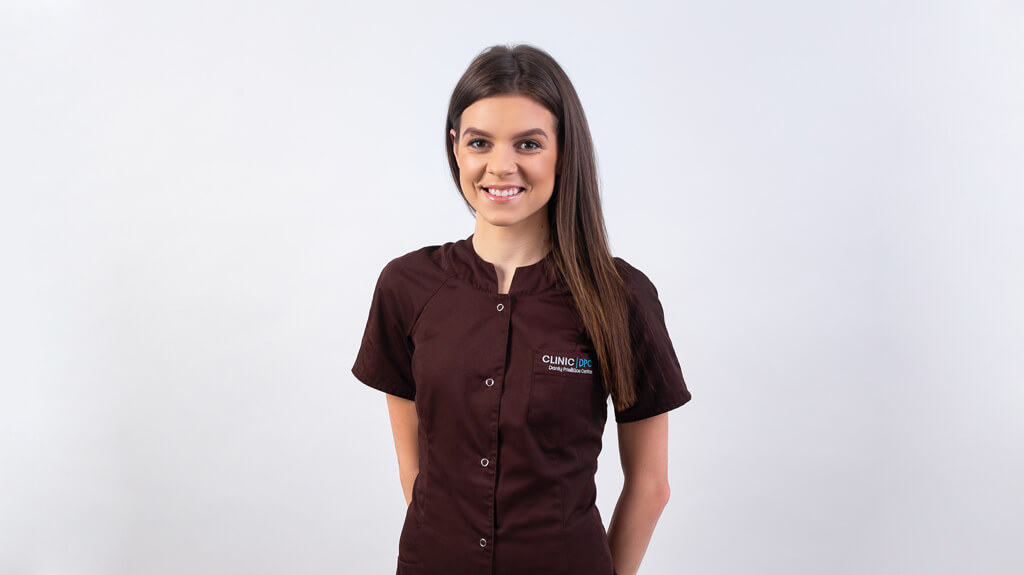
M. Vindašiūtė pamena ne vieną atvejį, kai besilaukiančios moterys išsigąsta burnoje vykstančių pokyčių, nors dažniausiai jie nėra pavojingi sveikatai. „Vienas labiausiai gąsdinančių potyrių – klibantis dantis. Neseniai paskambino sunerimusi klientė, kuri skundėsi klibančiu dantimi. Nėštumo metu dantys gali tapti ne tik jautrūs ir skausmingi, bet ir pradėti klibėti. Neišsigąskite, greičiausiai danties neprarasite. Padidėję nėštumo hormonai padeda atpalaiduoti raumenis, o kartais ir dantenas. Kai dantenos atsipalaiduoja, dantys gali pajudėti iš vietos“, – ramina odontologė. – „Jei nejaučiate skausmo ir nepatyrėte traumos, šis nepatogumas praeis pagimdžius“.
Specialistė įvardijo kelis įpročius, kurie padės išsaugoti sveikus dantis, jei vaikelio laukiatės karantino metu.
- – Brush your teeth twice a day for two minutes. It doesn’t matter whether you use a regular toothbrush or an electronic toothbrush, but some people find that they brush more thoroughly with an electronic toothbrush. If you feel nauseous when brushing, choose a brush with a smaller head and less foaming toothpaste.
- – Use toothpaste that contains natural minerals and the right amount of fluoride to help prevent tooth decay. If you are not sure which toothpaste is best during pregnancy, check with your dentist by phone or long distance.
- – Floss or brush your gums regularly, or use a water irrigator for even more thorough maintenance.
- -Avoid sugary drinks, non-alcoholic wine or beer and sweets. If you get hungry between main meals, snack on vegetables, fruit or unsweetened yogurt.
- – If you have gum problems, rinse your mouth with mouthwash several times a day. Although there is some debate in the medical community about whether it is necessary for people with healthy gums to use this mouthwash (it does not remove plaque, only mechanical brushing can do that), pregnant women are at a higher risk of developing gum problems, so using mouthwash can reduce the build-up of sticky plaque that allows bacteria to build up on the surface of the teeth. Choose a mouthwash that does not contain alcohol.
- – Daily salt rinses (1 teaspoon of salt per cup of warm water) can reduce gingivitis. After rinsing your mouth several times, spit out the solution.
- – If you have morning sickness or vomiting, rinse your mouth with water every time you vomit. This will help prevent damage to your teeth, which can be caused by the acid in the stomach contents. Do not brush your teeth immediately, as stomach acid softens enamel and makes teeth more vulnerable. Wait at least an hour before brushing.
Jei skauda dantį
Karantino metu apribotas privačių odontologijos klinikų darbas, o kreiptis į polikliniką galima tik esant rimtai priežasčiai. Jei pradėjo skaudėti dantį, nepanikuokite ir išgerkite įprastų vaistų nuo skausmo, o jei skausmas nepraeina, paskambinkite ar parašykite odontologui, kad galėtumėte užsiregistruoti būtinosios pagalbos suteikimui. Apsilankymo metu būtinai praneškite, kad laukiatės. Kai kurių procedūrų, tokių kaip rentgeno nuotraukos, nėščiosioms reikėtų vengti.
„Jeigu taip nutiko, kad dantų gydymas yra būtinas, labai gerai, jeigu odontologas galėtų bendradarbiauti su nėštumą prižiūrinčiu gydytoju. Pati pavojingiausia būklė – ūmi infekcija su pūliavimu. Pagrindinė gydytojo odontologo užduotis – suteikti pirmąją pagalbą, sumažinti skausmą, panaikinti infekciją, o tolimesnis gydymas planuojamas po nėštumo“, – pasakojo odontologė.
Mantvilė Vindašiūtė also points to regular dental care. Everyone, but especially women planning to become pregnant or women who are pregnant, should visit a dentist regularly. Periodic visits will help to prevent unforeseen situations such as quarantines, during which dentists’ hands are partly tied. The medical officer at Clinic | DPC reminds us that during the quarantine period, their clinic serves clients remotely: by phone, private Facebook messages, email and Skype.


